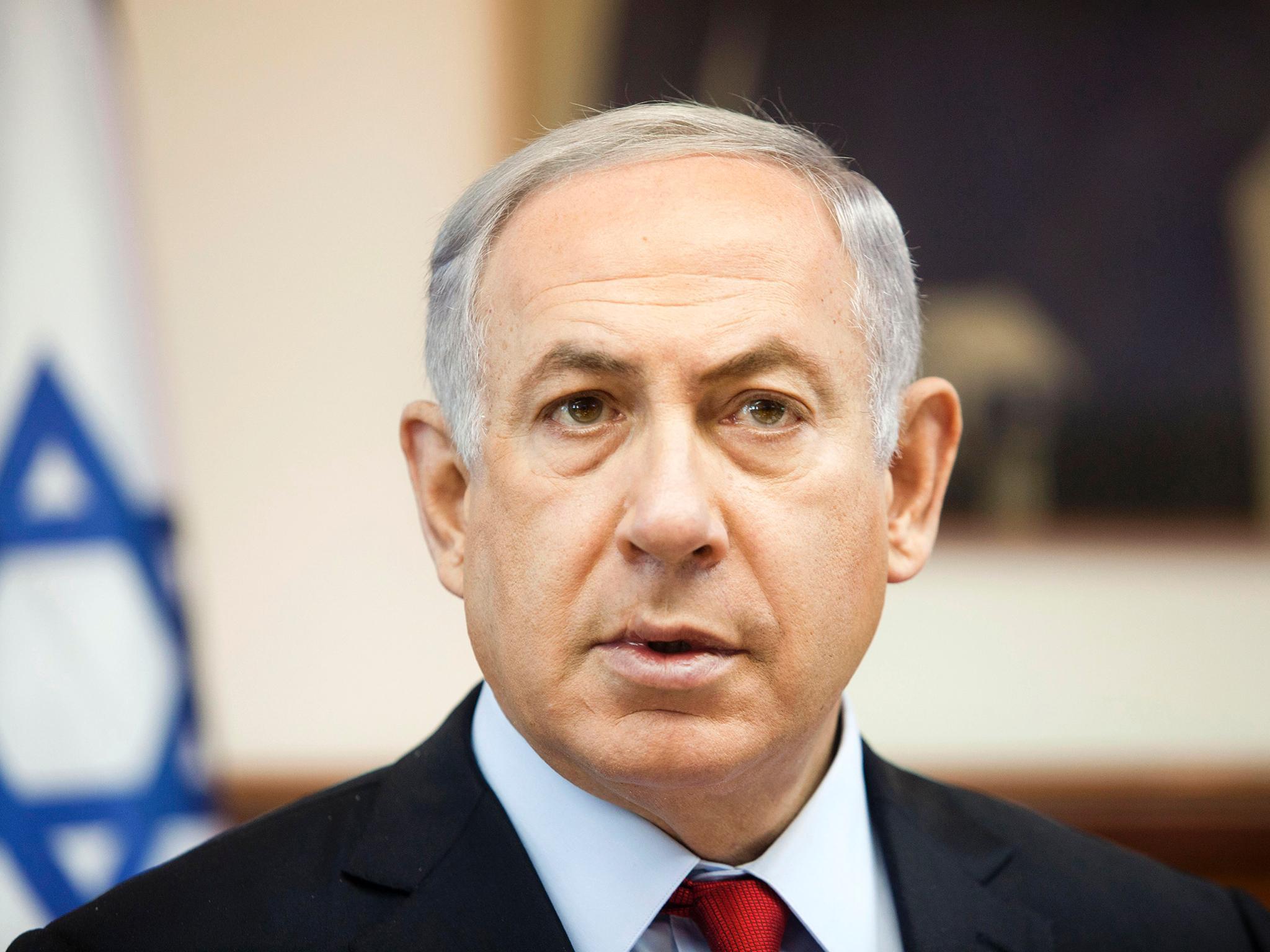Israel praises 'true friend in the White House' after Benjamin Netanyahu's phone call with Donald Trump
Leaders discuss Iran nuclear deal and peace process with the Palestinians in ‘very warm’ conversation

Your support helps us to tell the story
From reproductive rights to climate change to Big Tech, The Independent is on the ground when the story is developing. Whether it's investigating the financials of Elon Musk's pro-Trump PAC or producing our latest documentary, 'The A Word', which shines a light on the American women fighting for reproductive rights, we know how important it is to parse out the facts from the messaging.
At such a critical moment in US history, we need reporters on the ground. Your donation allows us to keep sending journalists to speak to both sides of the story.
The Independent is trusted by Americans across the entire political spectrum. And unlike many other quality news outlets, we choose not to lock Americans out of our reporting and analysis with paywalls. We believe quality journalism should be available to everyone, paid for by those who can afford it.
Your support makes all the difference.A senior Israeli official has praised the new US President Donald Trump as Israel’s “true friend in the White House”, marking a dramatic shift in relations between the two countries after the bitterness of the Barack Obama years.
Tzipi Hotovely, the Israeli deputy minister of foreign affairs, said that the country was “very happy about the new administration” after a phone call between Mr Trump and the Israeli Prime Minister Benjamin Netanyahu.
Speaking on BBC Radio 4’s Today Programme on Monday, Ms Hotovely said: “I think that all the declarations of the Trump administration were showing a deep friendship to Israel. They understand the complexity of the situation in the Middle East, in a world where everything is falling apart around us.”
“When Israel continues being the only democratic regime in the region, they want to keep Israel in its best shape.”
In the “very warm” phone call on Sunday evening, Mr Trump and Mr Netanyahu reportedly discussed military, security and intelligence cooperation between the two allies, a statement from Mr Netanyahu’s office said, including the “threat posed by Iran”, which has pledged Israel’s destruction.
Mr Trump said during his election campaign that he would seek to unpick the historic US-Iran deal, in which Iran agreed to curtail its nuclear programme in exchange for the lifting of crippling economic sanctions. He has not clarified his position since winning the presidency or taking office.
The new US President also insisted that “peace between Israel and the Palestinians can only be negotiated directly between the two parties”, reiterating his stance that Palestinians must recognise the validity of the Jewish state for the peace process and any hope of a two-state solution to be rekindled.
A separate statement from the White House said that the administration is in the “very early stages” of discussing moving the US Embassy from Tel Aviv to Jerusalem – a suggestion which has angered Palestinians, who also claim the city as their capital.
While under Mr Obama’s watch the US approved the biggest ever military aid package to the Jewish state – some £28bn ($38bn) of investment over the next ten years – personal relations between the former president and Mr Netanyahu became increasingly sour over the course of his tenure.
In what has widely been interpreted as a “parting shot” in December, the US Ambassador to the UN Samantha Power abstained on a Security Council resolution condemning Israeli settlement construction in the West Bank.
The action was a symbolic break with US policy in the past, which had been to use its veto power to shield Israel from international criticism on the issue.
The Trump administration has struck a much more sympathetic tone towards its ally, appointing a pro-settlement ambassador, David Friedman, and inviting pro-settlement groups to attend Mr Trump’s inauguration last week.
On Sunday, the Jerusalem Municipality announced the building of 566 new settler homes in three areas in occupied East Jerusalem, adding that the permits had been delayed as the authorities waited for Mr Obama’s term to end.
The Israeli Prime Minister has been invited to the White House for face-to-face talks in February, in what will be one of Mr Trump’s first meetings with another head of state since becoming Commander in Chief.
During Mr Trump’s election campaign many American Jews and Israelis expressed concern over alleged anti-Semitic comments made by both the President and senior members of his team.
Mr Netanyahu offered his congratulations on Mr Trump’s election victory in November, but forbade members of his government from reaching out to the then-President-elect’s team or commenting on the Republican win without going through his office first.
Join our commenting forum
Join thought-provoking conversations, follow other Independent readers and see their replies
Comments